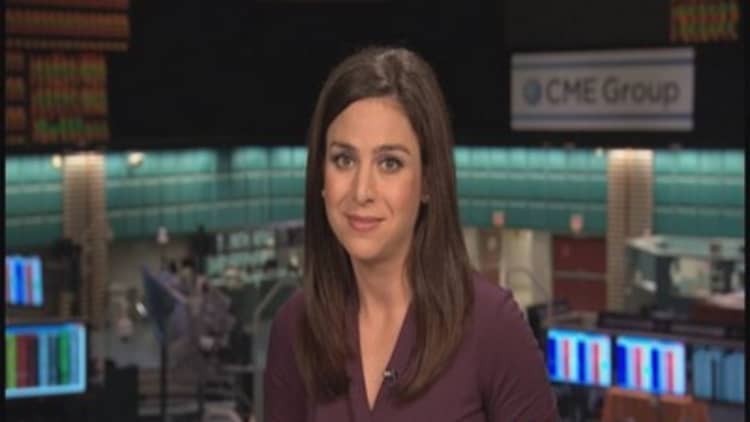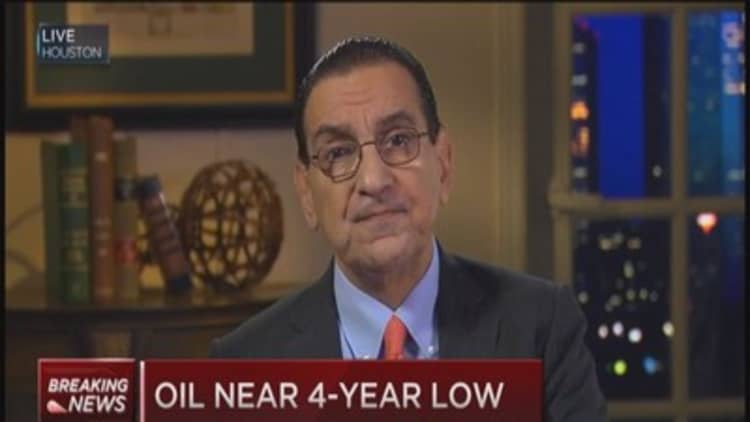
Crude oil futures stayed volatile Thursday as the stock market continued a slide that began on Wednesday when the Dow plunged as much as 400 points.
And when it comes to oil, there's a real lack of consensus on where it will go next.
Some traders were ready to call a bottom after U.S.-traded West Texas Intermediate crude dropped to $80.37 on Wednesday, and in the market hours that have transpired since, the commodity has been proving them right. Oil is sharply higher on Thursday ahead of options expiry for U.S. crude and contract expiry for internationally priced Brent crude.
Read MoreThe 10 biggest energy company bankruptcies of all time
"I think now you need to buy on dips," said Jeff Grossman of BRG Brokerage. "I see these prices moving sideways to higher over the next six weeks or so. The selling was anticipated, but how quickly it happened is what surprised me."
Typically, when oil dips, it tends to help stock market—the thought being lower energy prices allow consumers to spend elsewhere. This week, however, investors are looking at things through a different lens.
"It used to be that lower energy prices were a positive for the stock market. Now, it's an overall fear of deflation that is driving everything lower," Grossman said.

Other traders say there's still downside ahead.
"I don't think this is the bottom, I think we have four to five more dollars of selling to come from (Wednesday's) low of 80," said Anthony Grisanti, president of GRZ Energy. "If the market keeps tanking, crude will go right down with it. It's a confidence issue. If confidence drops oil will be weak."
Read MoreCreating inflation is easy. Just look at Venezuela
Grisanti said he thinks $75-76 is a key area of support, because that's where U.S. producers will start to need to decide if they should cut supply.
"At $75, traders will look to get in. They know that producers will be considering cutting production, and that creates a tightness that will naturally take the market higher," Grisanti said.
He also made a connection between Ebola, the stock market and crude.
"If we don't get a grip on Ebola, it could cause economic weakness, because no one will want to leave the house. That fear could take equities down—and crude could go to levels not seen since '09, like the $50 area," he said.

